Books
Antiquity. Arts + Culture. Entertainment. Philosophy + Religion. And more!

By Anita Shapira
Published November 25, 2014
288 pages
“A beautiful portrayal” —Shimon Peres, President of Israel (2007-2014)
An insightful study of the inner life of the Zionist leader responsible for the creation of the state of Israel
David Ben-Gurion cast a great shadow during his lifetime, and his legacy continues to be sharply debated to this day. There have been many books written about the life and accomplishments of the Zionist icon and founder of modern Israel, but this new biography by eminent Israeli historian Anita Shapira strives to get to the core of the complex man who would become the face of the new Jewish nation. Shapira tells the Ben-Gurion story anew, focusing especially on the period after 1948, during the first years of statehood. As a result of her extensive research and singular access to Ben-Gurion’s personal archives, the author provides fascinating and original insights into his personal qualities and those that defined his political leadership. As Shapira writes, “Ben-Gurion liked to argue that history is made by the masses, not individuals. But just as Lenin brought the Bolshevik Revolution into the world and Churchill delivered a fighting Britain, so with Ben-Gurion and the Jewish state. He knew how to create and exploit the circumstances that made its birth possible.” Shapira’s portrait reveals the flesh-and-blood man who more than anyone else realized the Israeli state.
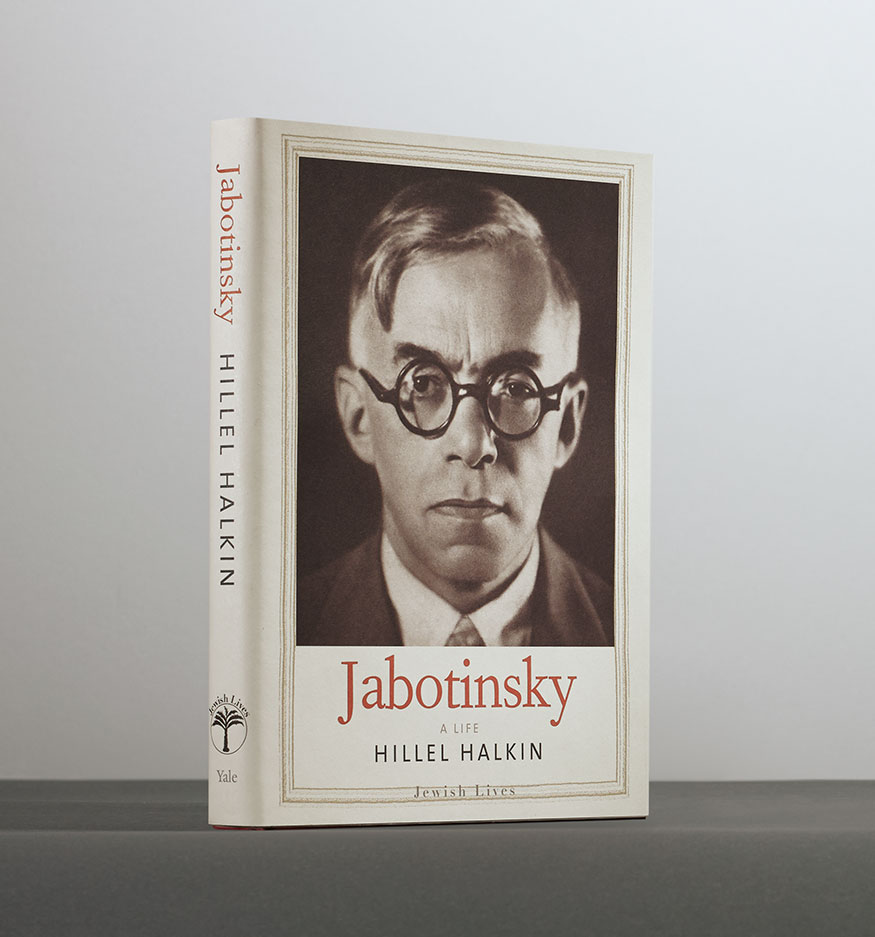
By Hillel Halkin
Published May 27, 2014
256 pages
“Beautifully written” —New York Review of Books
An insightful new biography of the most controversial and perhaps most fervent of all Zionist political figures
Vladimir Jabotinsky (1880–1940) was a man of huge paradoxes and contradictions and has been the most misunderstood of all Zionist politicians--a first-rate novelist, a celebrated Russian journalist, and the founder of the branch of Zionism now headed by Benjamin Netanyahu. This biography, the first in English in nearly two decades, undertakes to answer central questions about Jabotinsky as a writer, a political thinker, and a leader. Hillel Halkin sets aside the stereotypes to which Jabotinsky has been reduced by his would-be followers and detractors alike.
Halkin explains the importance of Odessa, Jabotinsky’s native city, in molding his character and outlook; discusses his novels and short stories, showing the sometimes hidden connections between them and Jabotinsky’s political thought, and studies a political career that ended in tragic failure. Halkin also addresses Jabotinsky’s position, unique among the great figures of Zionist history, as both a territorial maximalist and a principled believer in democracy. The author inquires why Jabotinsky was often accused of fascist tendencies though he abhorred authoritarian and totalitarian politics, and investigates the many opposed aspects of his personality and conduct while asking whether or not they had an ultimate coherence. Few figures in twentieth-century Jewish life were quite so admired and loathed, and Halkin’s splendid, subtle book explores him with empathy and lucidity.
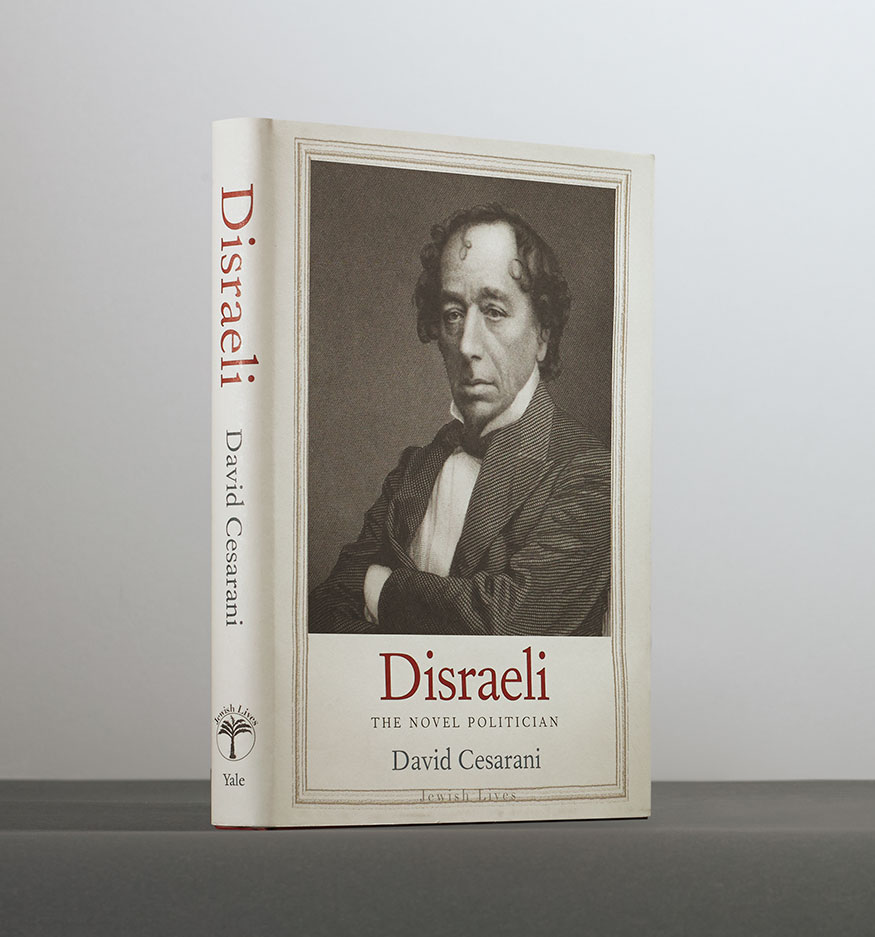
By David Cesarani
Published April 26, 2016
304 pages
“Superb” —The Wall Street Journal
A fresh, vivid look at Disraeli's life, achievements, and temperament that casts doubts on his much-touted commitment to Jewish rights
Lauded as a “great Jew,” excoriated by anti-Semites, and one of Britain’s most renowned prime ministers, Benjamin Disraeli has been widely celebrated for his role in Jewish history. But is the perception of him as a Jewish hero accurate? In what ways did he contribute to Jewish causes? In this groundbreaking, lucid investigation of Disraeli’s life and accomplishments, David Cesarani draws a new portrait of one of Europe’s leading nineteenth-century statesmen, a complicated, driven, opportunistic man.
While acknowledging that Disraeli never denied his Jewish lineage, boasted of Jewish achievements, and argued for Jewish civil rights while serving as MP, Cesarani challenges the assumption that Disraeli truly cared about Jewish issues. Instead, his driving personal ambition required him to confront his Jewishness at the same time as he acted opportunistically. By creating a myth of aristocratic Jewish origins for himself, and by arguing that Jews were a superior race, Disraeli boosted his own career but also contributed to the consolidation of some of the most fundamental stereotypes of modern antisemitism.

By Vivian Gornick
Published October 4, 2011
160 pages
“Gripping” —The Boston Globe
Emma Goldman is the story of a modern radical who took seriously the idea that inner liberation is the first business of social revolution. Her politics, from beginning to end, was based on resistance to that which thwarted the free development of the inner self. The right to stay alive in one’s senses, to enjoy freedom of thought and speech, to reject the arbitrary use of power—these were key demands in the many public protest movements she helped mount.
Anarchist par excellence, Goldman is one of the memorable political figures of our time, not because of her gift for theory or analysis or even strategy, but because some extraordinary force of life in her burned, without rest or respite, on behalf of human integrity—and she was able to make the thousands of people who, for decades on end, flocked to her lectures, feel intimately connected to the pain inherent in the abuse of that integrity. To hear Emma describe, in language as magnetic as it was illuminating, what the boot felt like on the neck, was to experience the mythic quality of organized oppression. As the women and men in her audience listened to her, the homeliness of their own small lives became invested with a sense of drama that acted as a catalyst for the wild, vagrant hope that things need not always be as they were. All you had to do, she promised, was resist. In time, she herself would become a world-famous symbol for the spirit of resistance to the power of institutional authority over the lone individual.
In Emma Goldman, Vivian Gornick draws a surpassingly intimate and insightful portrait of a woman of heroic proportions whose performance on the stage of history did what Tolstoy said a work of art should do: it made people love life more.
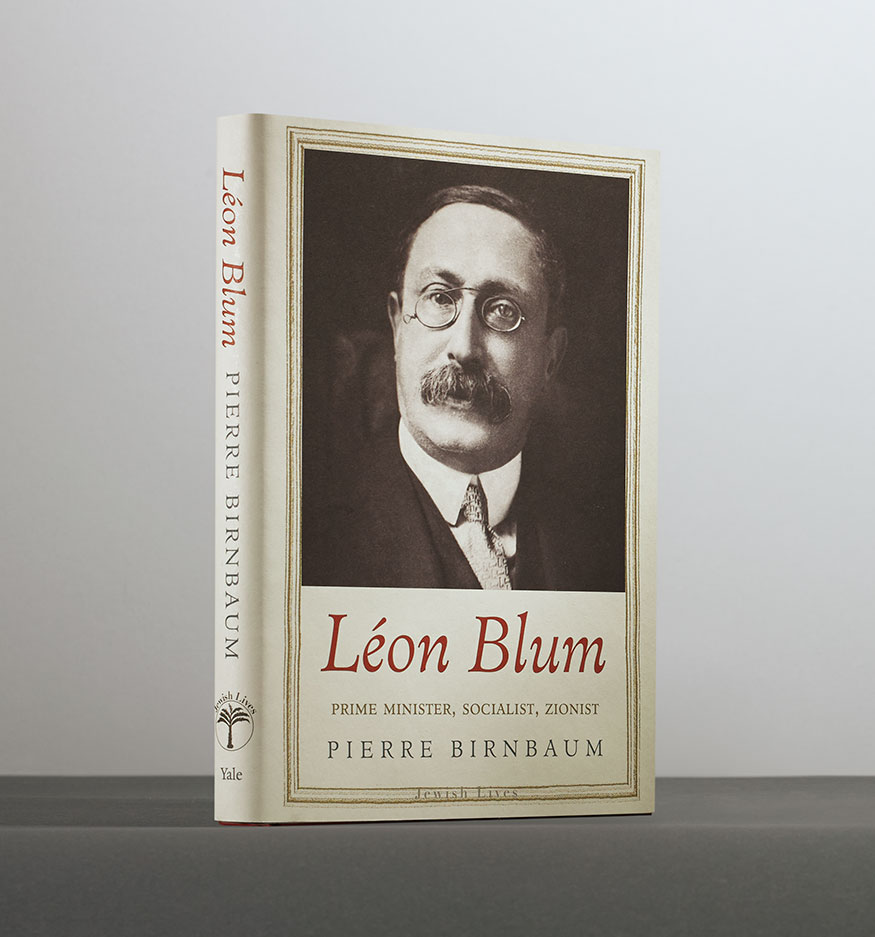
By Pierre Birnbaum
Published May 26, 2015
232 pages
“Illuminating” —Foreign Affairs
A new appreciation of the extraordinary life and legacy of Léon Blum, the first Jewish prime minister of France
Léon Blum (1872–1950), France’s prime minister three times, socialist activist, and courageous opponent of the pro-Nazi Vichy regime, profoundly altered French society. It is Blum who is responsible for France’s forty-hour week and its paid holidays, which were among the many reforms he championed as a deputy and as prime minister, while acting as a proudly visible Jew, a Zionist, and eventually a survivor of Buchenwald.
This biography fully integrates Blum’s Jewish commitments into the larger story of his life. Unlike previous biographies that downplay the significance of Blum’s Jewish heritage on his progressive politics, Pierre Birnbaum’s portrait depicts an extraordinary man whose political convictions were shaped and driven by his cultural background. The author powerfully demonstrates how Blum’s Jewishness was central to his outlook and mission, from his earliest entry into the political arena in reaction to the Dreyfus Affair, and how it sustained and motivated him throughout the remainder of his life. Birnbaum’s Léon Blum is a critical chapter in the larger history of Jews in France.
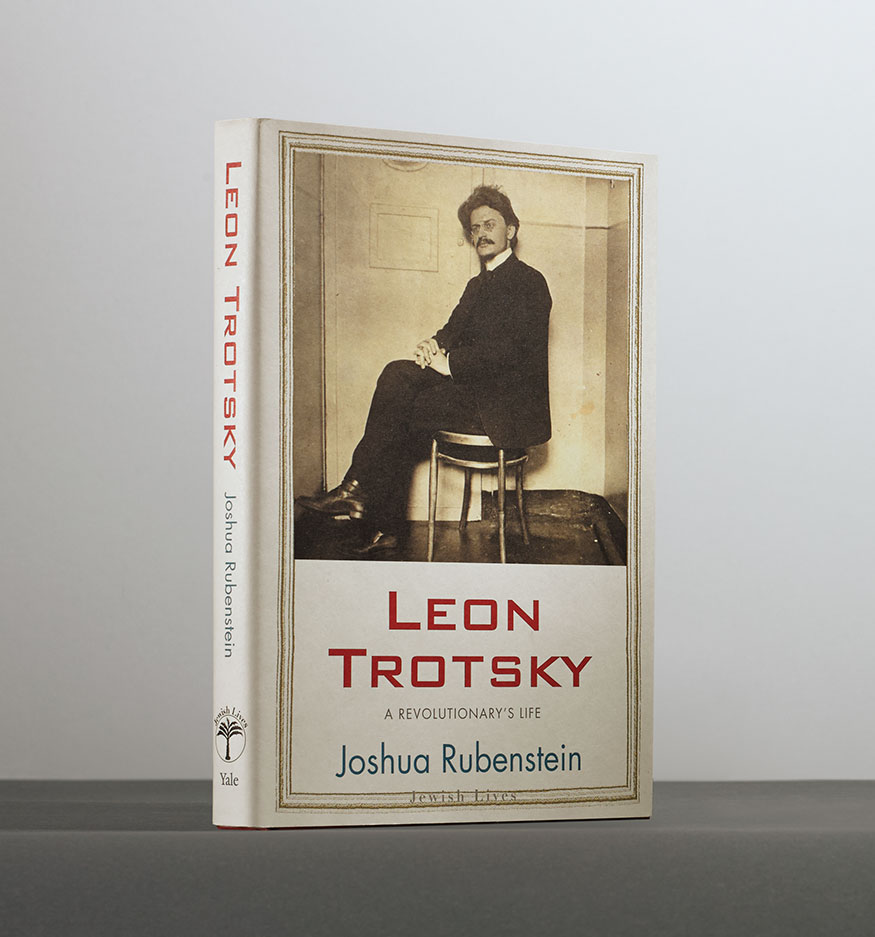
By Joshua Rubenstein
Published October 15, 2011
240 pages
“Exemplary” —The Jewish Advocate
Born Lev Davidovich Bronstein in southern Ukraine, Trotsky was both a world-class intellectual and a man capable of the most narrow-minded ideological dogmatism. He was an effective military strategist and an adept diplomat, who staked the fate of the Bolshevik revolution on the meager foundation of a Europe-wide Communist upheaval. He was a master politician who played his cards badly in the momentous struggle for power against Stalin in the 1920s. And he was an assimilated, indifferent Jew who was among the first to foresee that Hitler’s triumph would mean disaster for his fellow European Jews, and that Stalin would attempt to forge an alliance with Hitler if Soviet overtures to the Western democracies failed.
Here, Trotsky emerges as a brilliant and brilliantly flawed man. Rubenstein offers us a Trotsky who is mentally acute and impatient with others, one of the finest students of contemporary politics who refused to engage in the nitty-gritty of party organization in the 1920s, when Stalin was maneuvering, inexorably, toward Trotsky’s own political oblivion.
As Joshua Rubenstein writes in his preface, “Leon Trotsky haunts our historical memory. A preeminent revolutionary figure and a masterful writer, Trotsky led an upheaval that helped to define the contours of twentieth-century politics.” In this lucid and judicious evocation of Trotsky’s life, Joshua Rubenstein gives us an interpretation for the twenty-first century.
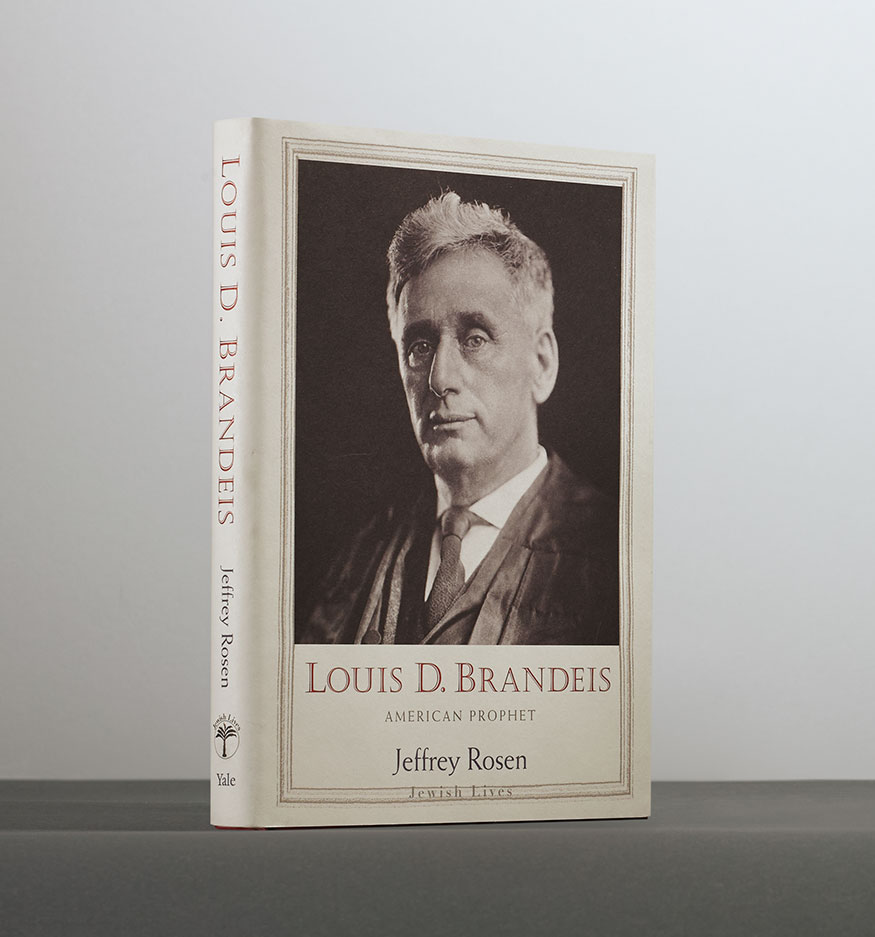
By Jeffrey Rosen
Published June 1, 2016
256 pages
“Compelling” —LA Review of Books
A riveting new examination of the leading progressive justice of his era, published in the centennial year of his confirmation to the U.S. Supreme Court
According to Jeffrey Rosen, Louis D. Brandeis was “the Jewish Jefferson,” the greatest critic of what he called “the curse of bigness,” in business and government, since the author of the Declaration of Independence. Published to commemorate the hundredth anniversary of his Supreme Court confirmation on June 1, 1916, Louis D. Brandeis: American Prophet argues that Brandeis was the most farseeing constitutional philosopher of the twentieth century. In addition to writing the most famous article on the right to privacy, he also wrote the most important Supreme Court opinions about free speech, freedom from government surveillance, and freedom of thought and opinion. And as the leader of the American Zionist movement, he convinced Woodrow Wilson and the British government to recognize a Jewish homeland in Palestine. Combining narrative biography with a passionate argument for why Brandeis matters today, Rosen explores what Brandeis, the Jeffersonian prophet, can teach us about historic and contemporary questions involving the Constitution, monopoly, corporate and federal power, technology, privacy, free speech, and Zionism.

By Mordechai Bar-On
Published July 17, 2012
264 pages
“Refreshing. Highly thoughtful.” —Jerusalem Report
Instantly recognizable with his iconic eye patch, Moshe Dayan (1915–1981) was one of Israel's most charismatic—and controversial—personalities. As a youth he earned the reputation of a fearless warrior, and in later years as a leading military tactician, admired by peers and enemies alike. As chief of staff during the 1956 Sinai Campaign and as minister of defense during the 1967 Six Day War, Dayan led the Israel Defense Forces to stunning military victories. But in the aftermath of the bungled 1973 Yom Kippur War, he shared the blame for operational mistakes and retired from the government. He later proved himself a principled and talented diplomat, playing an integral role in peace negotiations with Egypt.
In this memorable biography, Mordechai Bar-On, Dayan's IDF bureau chief, offers an intimate view of Dayan's private life, public career, and political controversies, set against an original analysis of Israel's political environment from pre-Mandate Palestine through the early 1980s. Drawing on a wealth of Israeli archives, accounts by Dayan and members of his circle, and firsthand experiences, Bar-On reveals Dayan as a man unwavering in his devotion to Zionism and the Land of Israel. Moshe Dayan makes a unique contribution to the history of Israel and the complexities of the Arab-Israeli conflict.

By Shulamit Volkov
Published January 24, 2012
256 pages
“Incisive and probing” —The Washington Times
This deeply informed biography of Walther Rathenau (1867–1922) tells of a man who—both thoroughly German and unabashedly Jewish—rose to leadership in the German War-Ministry Department during the First World War, and later to the exalted position of foreign minister in the early days of the Weimar Republic. His achievement was unprecedented—no Jew in Germany had ever attained such high political rank. But Rathenau’s success was marked by tragedy: within months he was assassinated by right-wing extremists seeking to destroy the newly formed Republic.
Drawing on Rathenau’s papers and on a depth of knowledge of both modern German and German-Jewish history, Shulamit Volkov creates a finely drawn portrait of this complex man who struggled with his Jewish identity yet treasured his “otherness.” Volkov also places Rathenau in the dual context of Imperial and Weimar Germany and of Berlin’s financial and intellectual elite. Above all, she illuminates the complex social and psychological milieu of German Jewry in the period before Hitler’s rise to power.

By Itamar Rabinovich
Published March 5, 2017
304 pages
“A thoughtful and extraordinarily comprehensive account of a significant leader” —Henry A. Kissinger
An insider’s perspective on the life and influence of Israel’s first native-born prime minister, his bold peace initiatives, and his tragic assassination
More than two decades have passed since prime minister Yitzhak Rabin’s assassination in 1995, yet he remains an unusually intriguing and admired modern leader. A native-born Israeli, Rabin became an inextricable part of his nation’s pre-state history and subsequent evolution. This revealing account of his life, character, and contributions draws not only on original research but also on the author’s recollections as one of Rabin’s closest aides.
An awkward politician who became a statesman, a soldier who became a peacemaker, Rabin is best remembered for his valiant efforts to resolve the Israeli-Palestinian conflict and for the Oslo Accords. Itamar Rabinovich provides extraordinary new insights into Rabin’s relationships with powerful leaders including Bill Clinton, Jordan’s King Hussein, and Henry Kissinger, his desire for an Israeli-Syrian peace plan, and the political developments that shaped his tenure. The author also assesses the repercussions of Rabin’s murder: Netanyahu’s ensuing election and the rise of Israel’s radical right wing.

By Lillian Faderman
Published May 22, 2018
204 pages
"Harvey Milk as seen through fresh, highly knowledgeable eyes." —Kirkus Reviews (starred review)
A lively and engaging biography of the first openly gay man elected to public office in the United States, a man fiercely committed to protecting all minorities
Harvey Milk—eloquent, charismatic, and a smart-aleck—was elected to the San Francisco Board of Supervisors in 1977, but he had not even served a full year in office when he was shot by a homophobic fellow supervisor. Milk’s assassination at the age of forty-eight made him the most famous gay man in modern history; twenty years later Time magazine included him on its list of the hundred most influential individuals of the twentieth century.
Before finding his calling as a politician, however, Harvey variously tried being a schoolteacher, a securities analyst on Wall Street, a supporter of Barry Goldwater, a Broadway theater assistant, a bead-wearing hippie, the operator of a camera store and organizer of the local business community in San Francisco. He rejected Judaism as a religion, but he was deeply influenced by the cultural values of his Jewish upbringing and his understanding of anti-Semitism and the Holocaust. His early influences and his many personal and professional experiences finally came together when he decided to run for elective office as the forceful champion of gays, racial minorities, women, working people, the disabled, and senior citizens. In his last five years, he focused all of his tremendous energy on becoming a successful public figure with a distinct political voice.

By Derek Penslar
Published February 18, 2020
256 pages
“Excellent” —Publishers Weekly (starred review)
A masterful new biography of Theodor Herzl by an eminent historian of Zionism
The life of Theodor Herzl (1860–1904) was as puzzling as it was brief. How did this cosmopolitan and assimilated European Jew become the leader of the Zionist movement? How could he be both an artist and a statesman, a rationalist and an aesthete, a stern moralist yet possessed of deep, and at times dark, passions? And why did scores of thousands of Jews, many of them from traditional, observant backgrounds, embrace Herzl as their leader?
Drawing on a vast body of Herzl’s personal, literary, and political writings, historian Derek Penslar shows that Herzl’s path to Zionism had as much to do with personal crises as it did with antisemitism. Once Herzl devoted himself to Zionism, Penslar shows, he distinguished himself as a consummate leader—possessed of indefatigable energy, organizational ability, and electrifying charisma. Herzl became a screen onto which Jews of his era could project their deepest needs and longings.

By James Traub
Published October 5, 2021
200 pages
“The best…biography of Benjamin that exists.” —Jonathan Sarna
A moral examination of one of the first Jewish senators, confidante to Jefferson Davis, and champion of the cause of slavery
Judah P. Benjamin (1811–1884) was a brilliant and successful lawyer in New Orleans, and one of the first Jewish members of the U.S. Senate. He then served in the Confederacy as secretary of war and secretary of state, becoming the confidant and alter ego of Jefferson Davis. In this new biography, author James Traub grapples with the difficult truth that Benjamin, who was considered one of the greatest legal minds in the United States, was a slave owner who deployed his oratorical skills in defense of slavery.
How could a man as gifted as Benjamin, knowing that virtually all serious thinkers outside the American South regarded slavery as the most abhorrent of practices, not see that he was complicit with evil? This biography makes a serious moral argument both about Jews who assimilated to Southern society by embracing slave culture and about Benjamin himself, a man of great resourcefulness and resilience who would not, or could not, question the practice on which his own success, and that of the South, was founded.

By Deborah E. Lipstadt
Published August 15, 2023
288 pages
“Thoughtful” —Kirkus Review
A balanced biography of Golda Meir, who was both adored and abhorred, from award-winning author Deborah E. Lipstadt
Golda Meir (1898–1978) was the first and only woman to serve as prime minister of Israel. She was born in Kiev into a childhood of poverty, hunger, and antisemitism. When she was five, her father left to find work in America, and a year later the family settled in Milwaukee, Wisconsin. As a teenager she became devoted to Labor Zionism, giving street-corner speeches, and her family’s home became a destination for Zionist emissaries. Her love for Labor Zionism was so fervent that her boyfriend, Morris Meyerson (her future husband), was often in competition with her dedication to the cause.
Zionism prevailed. In 1921, Golda left America for Palestine with Morris and her sister Sheyna. Though the reality of living in Palestine was far from the dream of Zionism, Meir settled on the kibbutz Merhavia and was swiftly appointed to the Histadrut (the General Organization of Hebrew Workers in Palestine). As an ally of the Zionist David Ben-Gurion, Meir played an important role in the Yishuv, the pre-state Jewish community in Palestine; proved an almost singular ability to connect and fundraise with diaspora Jewry, particularly Americans; and served in three pivotal positions following Israel’s independence: labor secretary of the newly formed state, foreign minister, and Israel’s fourth prime minister.
In tracing the life of Golda Meir, acclaimed author Deborah E. Lipstadt explores the history of the Yishuv and Jewish state from the 1920s through the 1973 Yom Kippur War, all while highlighting the contradictions and complexities of a person who was only the third woman to serve as a head of state in the twentieth century.
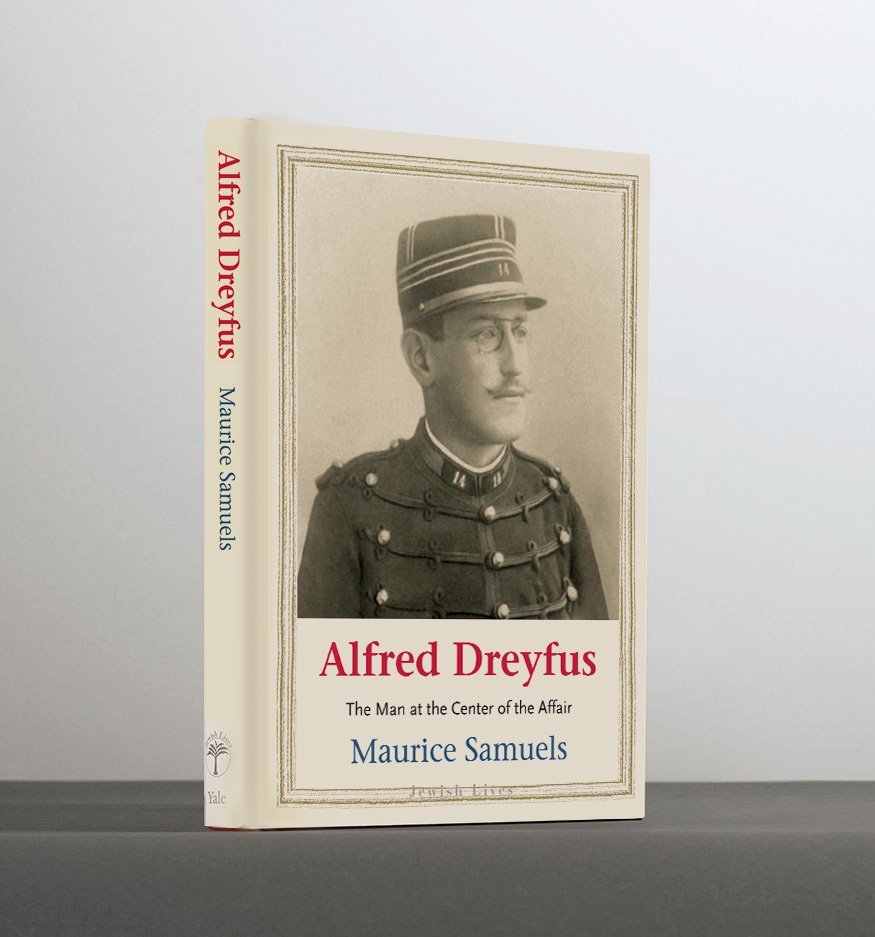
By Maurice Samuels
Published February 27, 2024
224 pages
“Pioneering” —Samuel Moyn
An insightful new biography of the central figure in the Dreyfus Affair, focused on the man himself and based on newly accessible documents
On January 5, 1895, Captain Alfred Dreyfus’s cries of innocence were drowned out by a mob shouting “Death to Judas!” In this book, Maurice Samuels gives readers new insight into Dreyfus himself—the man at the center of the affair. He tells the story of Dreyfus’s early life in Paris, his promising career as a French officer, the false accusation leading to his imprisonment on Devil’s Island, the fight to prove his innocence that divided the French nation, and his life of quiet obscurity after World War I.
Samuels’s striking perspective is enriched by a newly available archive of more than three thousand documents and objects donated by the Dreyfus family. Unlike many historians, Samuels argues that Dreyfus was not an “assimilated” Jew. Rather, he epitomized a new model of Jewish identity made possible by the French Revolution, when France became the first European nation to grant Jews full legal equality. This book analyzes Dreyfus’s complex relationship to Judaism and to antisemitism over the course of his life—a story that, as global antisemitism rises, echoes still. It also shows the profound effect of the Dreyfus Affair on the lives of Jews around the world.
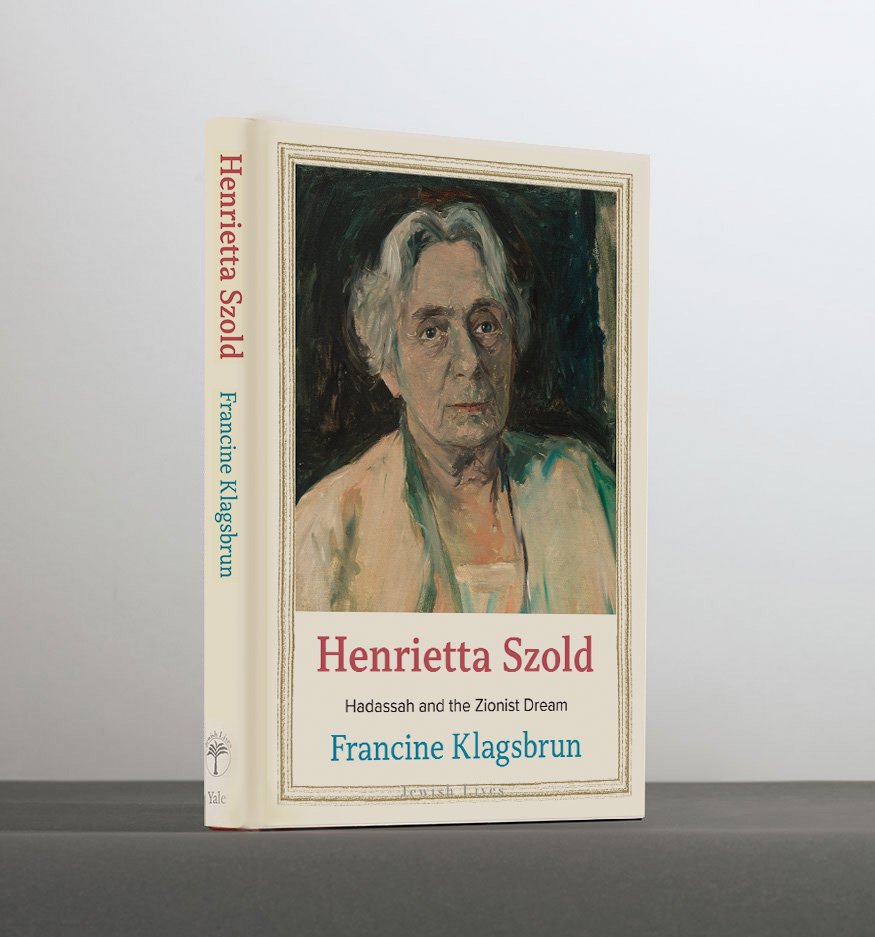
By Francine Klagsbrun
Published March 5, 2024
256 pages
“Engrossing” —Rabbi David Ellenson
Award-winning author Francine Klagsbrun reveals the complex life and work of Henrietta Szold, founder of Hadassah and a Zionist trailblazer
Henrietta Szold (1860–1945) is renowned as the founder of Hadassah, the Women’s Zionist Organization of America, which quickly became one of the most successful of all Zionist groups. In her work with Hadassah, Szold used a combined ethical and pragmatic approach aimed at improving the lives of both Jews and Arabs. She later moved to Mandate Palestine to help shape education, health, and social services there. The pinnacle of her career came in her seventies, when she took on the task of directing the Youth Aliyah program, which rescued thousands of young people from the Nazis and resettled them in Palestine.
Using Szold’s copious letters, diaries, and essays, along with other archival documents, Francine Klagsbrun traces Szold’s life and legacy with an eye to uncovering the person behind the Zionist icon. She reveals Szold as a complex human being who had to cope with controversy and criticism, a workaholic with an outsized sense of duty, and an idealist who fought for her beliefs even as she questioned her own abilities. With deep insight, Klagsbrun introduces readers to this extraordinary woman, whose impact on women’s lives as well as on education and health systems still resonates.